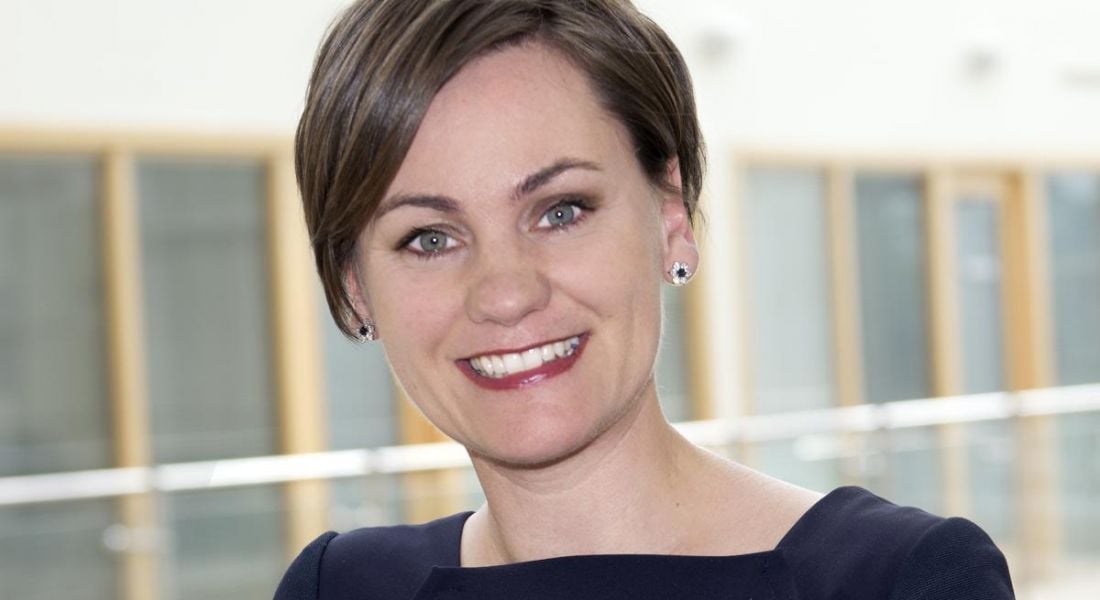Willis Towers Watson’s Sarah McDonough discusses HR challenges in the Covid era, how employees are taking charge of their career development, and what we’ll need to think about for the future.
Sarah McDonough has more than 20 years’ experience across communications, employer brand strategy and employee engagement.
She ran her own consultancy business for 10 years, where she worked with different organisations on internal engagement and helping teams through transformation periods. Earlier this year, she became talent and reward country lead for Ireland at advisory firm Willis Towers Watson.
‘Given how quickly we have all had to adapt in recent months, it is important to think differently about what could be possible in the future’
– SARAH MCDONOUGH
What are some of the main responsibilities of your current role?
As well as being the talent and reward country lead at Willis Towers Watson, I am also the director of communications and change management. I lead a team of 15 people and we focus on providing clients with business and HR strategy, data and consulting services.
We take a holistic view and advise on everything from how to organise work, how to reward for that work and build a powerful employee experience that connects people to each other and the purpose of the organisation.
Talent and reward is an important consideration for employers of all sizes and its relevance has been magnified by the Covid-19 pandemic as businesses look to refocus and structure themselves for future growth.
What are the biggest HR challenges facing companies right now?
It’s a really challenging environment for every business leader right now, but especially for those leading in HR and people management. The changes brought on the traditional working environment by Covid-19 have been fast paced and unprecedented and many of these changes, which we originally thought were temporary, will undoubtedly become new ways of working for many.
On a fundamental level, organisations have the challenge of making sure their employees can work safely, whether that is at home or on site. For those working remotely, it is extremely important to focus on employee wellbeing, to be aware there can be some who will find working from home quite isolating with the loss of connection to a team. Supporting employees through this time of uncertainty, across all dimensions of wellbeing, and maintaining regular communication with remote teams is a big challenge.
Another huge task is helping to strategically guide the organisation through this period of uncertainty, which in some cases may include restructuring programmes. These programmes need to be implemented carefully with sustained communication to ensure employees understand the need for the change and what impact it will have on their role, so that uncertainty is removed and productivity and engagement maintained.
We are also being asked all the time about how are people planning budgets, salary increases or freezes, or new staff hires. These are challenges that would be relatively straightforward to plan for normally, but with so much uncertainty right now it’s really creating a difficult environment.
What are the technology opportunities you’re seeing at the moment?
At Willis Towers Watson we have been examining the future of work for the last several years, and this has undoubtedly been amplified and accelerated through the pandemic.
There are some really interesting methodologies and frameworks that we have to support decisions around how to approach employee experience and how we structure work and reward talent. We can use these frameworks and technology to examine what skillsets are available across the organisation, where productivity can be enhanced through greater use of technology, how best to deploy excess capacity within the organisation, where talent needs upskilling or reskilling, and how to reward that talent.
What has been the biggest culture change you’ve seen in the last five years?
The biggest cultural change is the way in which people are more involved in self-managing their career development and making their voices heard within their organisations, which is actually reflective of what is happening across wider society where people are more willing to get involved and be heard. The #MeToo movement was a great example of that, and created a moment where people really stood up and actively called out certain behaviours and took ownership of areas within both their personal and professional lives.
Employees are now taking more ownership of their professional development, rather than it being a hierarchical process, set from the top down. They are proactively approaching their employers with requests for CPD and training supports and wanting a defined pathway for progression. As a result, we also see employees looking for more continuous feedback, rather than the traditional performance review once a year. It has become a continuous two-way conversation.
What key strategies will be important for the future of work?
It’s going to become increasingly important for organisations to be able to respond quickly and decisively if changes such as a hiring freeze or restructuring need to be made, to ensure there are no long-term impacts on survival.
It’s crucial to look beyond the next two or three years, and ask where is our market moving to, what do we want our organisation to look like, and how can we ensure we evolve in terms of who we work with and how work gets done. That could involve looking at a blend of the human touch alongside AI.
Businesses will also need to continue to deliver an employee experience that makes people feel connected to the organisation, that they feel adequately rewarded for the work they do and the organisation is aligned to where they want to go.
What is the one thing you think HR teams should stop doing, or start doing differently?
It’s really important to be open to looking at things in a different way. I’ve heard so many examples recently of companies who said, “We never thought we would be able to work fully remotely, and now look at us”. The things we thought would take years, we did in a matter of weeks.
Given how quickly we have all had to adapt in recent months, it is important to think differently about what could be possible in the future. We need to ensure there is an agility built into how we think and how we work from here on, so companies are well positioned to respond to any similar challenges in the future.
Don’t be afraid to try something new if the old way isn’t working. It’s all about building that mindset of learning from past experiences and adapting as necessary.
What resources can you not live without?
For work, I could not live without high-speed broadband, which allows me to connect to my team and clients. I am also a big fan of Spotify, Netflix and Instagram. But equally important for me is being able to switch off and totally disconnect from technology. Leaving the devices behind and getting out for a walk is so important.
In the current climate there is a tendency for us all to be connected all the time. By moving to working from home we have all lost the daily commute and, although that comes with huge advantages, it also makes it more difficult to have a clear barrier between work life and home life. Now, more than ever, the ability to literally switch off is the most important thing.




